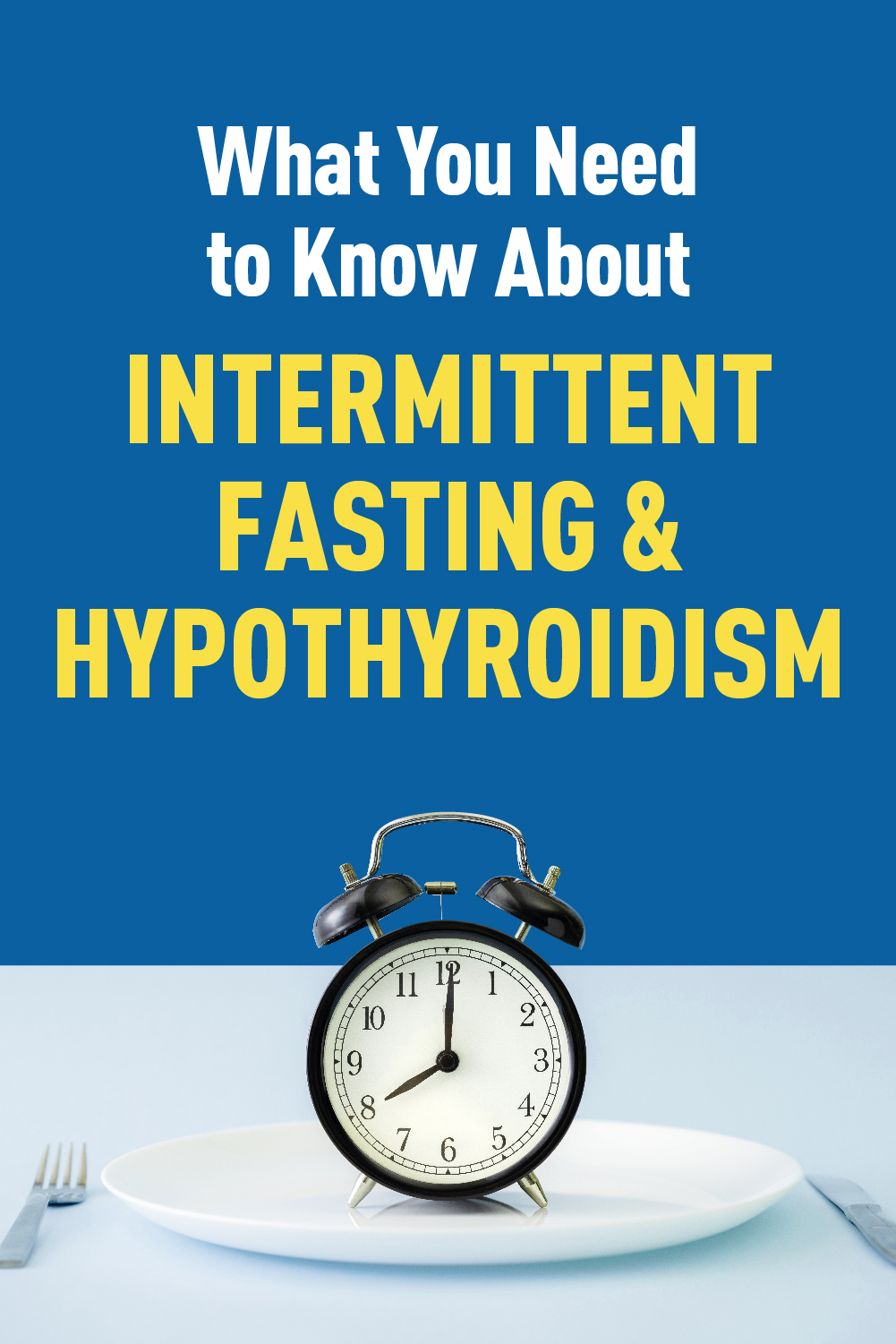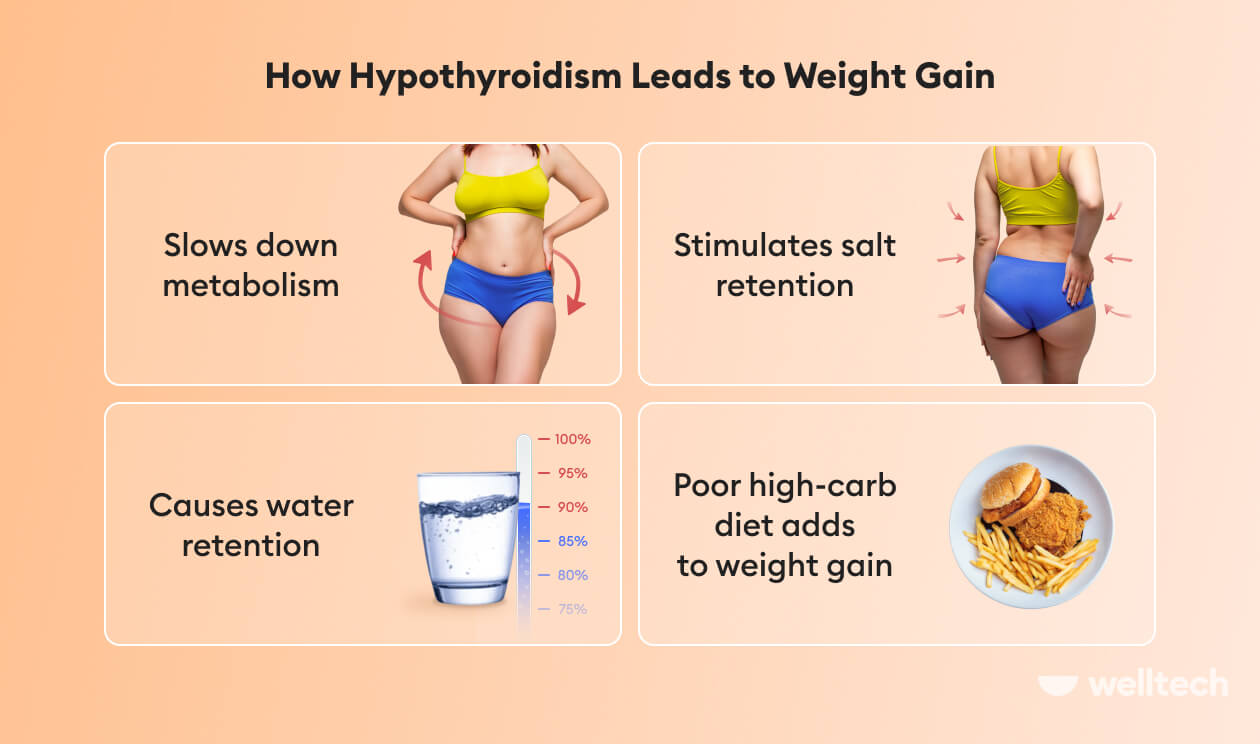Your trusted source for simple, practical nutrition advice and tips for a healthier lifestyle.
Intermittent fasting and hypothyroidism can coexist, but it’s essential to monitor thyroid function. Consulting a healthcare provider is crucial.
Intermittent fasting involves alternating periods of eating and fasting. It can offer numerous health benefits, including weight loss and improved metabolic health. However, for individuals with hypothyroidism, a condition where the thyroid gland is underactive, intermittent fasting requires careful consideration.
Thyroid hormones play a vital role in regulating metabolism, and any dietary change can impact hormone levels. Before starting intermittent fasting, those with hypothyroidism should consult their healthcare provider. This ensures the fasting plan complements their treatment and does not exacerbate symptoms. Personalized guidance can help maintain thyroid health while reaping the benefits of intermittent fasting.

Credit: m.youtube.com
Introduction To Intermittent Fasting
Intermittent fasting has gained popularity for its health benefits. This dietary pattern involves alternating periods of fasting and eating. People with hypothyroidism may wonder if it is suitable for them. This section will explore the basics of intermittent fasting.
What Is Intermittent Fasting?
Intermittent fasting is not a diet but an eating pattern. It focuses on when you eat, not what you eat. The goal is to cycle between periods of eating and fasting. There are different methods to follow intermittent fasting.
Popular Methods Of Intermittent Fasting
Many methods of intermittent fasting exist. Here are a few popular ones:
Understanding Hypothyroidism
Hypothyroidism is a common thyroid disorder. It affects millions of people worldwide. Understanding its nature is crucial for effective management. This section delves into what hypothyroidism is and its common symptoms.
What Is Hypothyroidism?
Hypothyroidism occurs when the thyroid gland does not produce enough thyroid hormones. This small, butterfly-shaped gland is located at the base of your neck. Thyroid hormones regulate metabolism, energy levels, and overall health.
When hormone levels are low, the body’s processes slow down. This results in various symptoms and health issues. The most common cause is autoimmune thyroiditis, also known as Hashimoto’s disease.
Other causes include thyroid surgery, radiation therapy, and certain medications. Understanding the root cause helps in managing the condition effectively.
Common Symptoms
- Fatigue
- Weight gain
- Cold intolerance
- Dry skin
- Hair loss
- Muscle weakness
- Depression
- Constipation
These symptoms can vary in severity. They often develop slowly over time. Many people may not realize they have hypothyroidism at first.
Fatigue and weight gain are the most noticeable symptoms. Feeling cold all the time is another common sign. Dry skin and hair loss are also frequent complaints.
Muscle weakness can make daily tasks difficult. Depression may affect your mental health. Constipation can cause discomfort and bloating.
If you experience these symptoms, consult a healthcare provider. Early diagnosis and treatment can improve quality of life. Blood tests can confirm hypothyroidism and guide treatment plans.
Managing hypothyroidism often involves taking synthetic thyroid hormones. Lifestyle changes like diet and exercise also play a role.
Intermittent Fasting Benefits
Intermittent fasting has gained popularity for its numerous health benefits. For those with hypothyroidism, it can be particularly beneficial. Here are some key benefits of intermittent fasting.
Weight Management
Intermittent fasting can help with weight management. Many people with hypothyroidism struggle with weight gain. Fasting helps by reducing calorie intake over time. It also boosts metabolism, helping the body burn more calories. This can be very helpful for those managing hypothyroidism.
Improved Metabolic Health
Intermittent fasting improves metabolic health. It helps regulate blood sugar levels. This can be beneficial for those with hypothyroidism. A stable metabolism helps the thyroid function better. Fasting also reduces inflammation, which is important for thyroid health.
| Benefit | Description |
|---|---|
| Weight Management | Helps control weight by reducing calorie intake and boosting metabolism. |
| Improved Metabolic Health | Regulates blood sugar levels and reduces inflammation. |
- Weight Management: Helps control weight through reduced calorie intake.
- Improved Metabolic Health: Regulates blood sugar and reduces inflammation.
Intermittent Fasting And Thyroid Health
Intermittent fasting (IF) has gained popularity for weight loss and health. But how does it impact thyroid health? This question is crucial for those with hypothyroidism. Let’s dive into the details of intermittent fasting and its effects on thyroid function.
Impact On Thyroid Function
Thyroid hormones regulate many body functions. Intermittent fasting may impact these hormones. Some studies show that fasting can lower T3 levels. T3 is an active thyroid hormone.
Lower T3 may slow your metabolism. This can affect energy levels and weight. But, other studies suggest that short-term fasting has little effect on thyroid function.
So, how intermittent fasting affects your thyroid may vary. It depends on the duration and type of fasting. Always consult with a healthcare provider before starting any fasting regimen.
Potential Benefits
Intermittent fasting may offer benefits for thyroid health. Here are some possible advantages:
- Reduced Inflammation: Fasting can lower inflammation, which benefits thyroid health.
- Improved Insulin Sensitivity: Better insulin sensitivity helps manage weight. Weight management can support thyroid function.
- Enhanced Cellular Repair: Fasting triggers autophagy, a process that repairs cells. Healthy cells support better thyroid function.
A balanced approach is key. Combine intermittent fasting with a nutritious diet. This ensures you get essential nutrients for thyroid health.
| Potential Benefits | Description |
|---|---|
| Reduced Inflammation | Fasting may lower inflammation, which is good for thyroid health. |
| Improved Insulin Sensitivity | Better insulin sensitivity aids in weight management. |
| Enhanced Cellular Repair | Fasting promotes autophagy, which repairs cells. |
Intermittent fasting can be a tool for better health. But, always consider personal factors. Your thyroid health is unique. Consult your healthcare provider to tailor a plan that fits your needs.
Precautions For Hypothyroidism Patients
Intermittent fasting can offer many health benefits. Hypothyroidism patients need to take special precautions. This ensures that fasting does not affect their thyroid health. Below are important steps to follow.
Consulting Healthcare Providers
Consult your healthcare provider before starting intermittent fasting. They can assess your thyroid condition. They may recommend specific fasting schedules. Follow their advice to avoid health risks.
Monitoring Thyroid Levels
Regularly monitor your thyroid levels. This helps track any changes. Use the table below for guidance on tests and frequency.
| Test | Frequency |
|---|---|
| TSH (Thyroid Stimulating Hormone) | Every 3 months |
| Free T4 | Every 3 months |
Keep a log of your test results. Share them with your doctor. This helps in adjusting your treatment if needed.

Credit: www.npthyroid.com
Dietary Considerations
Intermittent fasting with hypothyroidism requires careful dietary planning. The right foods help manage symptoms and support overall health. It’s important to include nutrient-rich foods and avoid certain foods that may trigger issues.
Nutrient-rich Foods
People with hypothyroidism need specific nutrients for thyroid health. Here is a list of nutrient-rich foods to include in your diet:
- Seafood: Rich in iodine and omega-3 fatty acids
- Leafy Greens: High in vitamins and minerals like magnesium
- Nuts and Seeds: Great sources of selenium and zinc
- Fruits: Berries, bananas, and citrus fruits for antioxidants
- Legumes: Beans and lentils provide fiber and protein
Avoiding Certain Foods
Some foods can interfere with thyroid function. Avoid these to maintain better health:
- Processed Foods: High in unhealthy fats and sugars
- Cruciferous Vegetables: Broccoli, cabbage, and kale can impact iodine absorption
- Gluten: May cause inflammation in people with autoimmune thyroid disease
- Soy Products: Can interfere with thyroid hormone absorption
- Excessive Fiber: Can impair the absorption of thyroid medication
Here’s a table summarizing the key foods to include and avoid:
| Foods to Include | Foods to Avoid |
|---|---|
| Seafood | Processed Foods |
| Leafy Greens | Cruciferous Vegetables |
| Nuts and Seeds | Gluten |
| Fruits | Soy Products |
| Legumes | Excessive Fiber |
Lifestyle Tips
Intermittent fasting can be a beneficial practice for many. However, individuals with hypothyroidism need to consider specific lifestyle tips. These tips can help to maintain a balanced and healthy life. Here, we focus on two crucial aspects: stress management and adequate sleep.
Stress Management
Managing stress is vital for those with hypothyroidism. High stress levels can negatively impact thyroid function. Here are some effective ways to manage stress:
- Meditation: Practice daily meditation to calm your mind.
- Deep Breathing: Try deep breathing exercises to reduce anxiety.
- Physical Activity: Engage in light exercise, like yoga or walking.
- Hobbies: Spend time on hobbies you enjoy.
- Social Support: Stay connected with friends and family.
Consider integrating these activities into your daily routine. They can help to lower stress and support thyroid health.
Adequate Sleep
Adequate sleep is essential for everyone, especially those with hypothyroidism. Good sleep helps regulate hormones and energy levels. Follow these tips for better sleep:
- Consistent Schedule: Go to bed and wake up at the same time every day.
- Relaxing Routine: Create a calming bedtime routine, like reading or a warm bath.
- Sleep Environment: Keep your bedroom dark, quiet, and cool.
- Limit Screens: Avoid screens an hour before bed.
- Caffeine Intake: Reduce caffeine intake, especially in the afternoon.
By following these tips, you can improve your sleep quality. This will aid in managing hypothyroidism symptoms more effectively.
Success Stories
Intermittent fasting (IF) has become popular for managing hypothyroidism. Many people have shared their success stories. These stories inspire others dealing with the same condition. Let’s dive into some personal experiences and expert insights.
Personal Experiences
Many individuals with hypothyroidism have tried intermittent fasting. Their stories are full of hope and success.
- Anna, 34: Anna struggled with weight gain due to hypothyroidism. She started intermittent fasting and lost 15 pounds in three months. Her energy levels also improved.
- John, 42: John faced fatigue and brain fog. After starting intermittent fasting, he noticed better mental clarity and increased energy.
- Maria, 29: Maria had trouble with mood swings. She found that intermittent fasting stabilized her mood and made her feel happier.
Expert Insights
Experts have studied the effects of intermittent fasting on hypothyroidism. Their insights provide valuable information.
| Expert | Insight |
|---|---|
| Dr. Jane Smith | Intermittent fasting may help regulate hormone levels. |
| Dr. Robert Brown | IF can reduce inflammation, a common issue in hypothyroidism. |
| Dr. Emily White | Fasting improves metabolic function, aiding weight management. |

Credit: welltech.com
Frequently Asked Questions
What Is Intermittent Fasting?
Intermittent fasting involves alternating periods of eating and fasting. It’s a popular method for weight loss and improving metabolic health.
Is Intermittent Fasting Safe For Hypothyroidism?
Intermittent fasting can be safe for hypothyroidism if done correctly. Consult your doctor before starting any fasting regimen.
Can Fasting Affect Thyroid Function?
Fasting may impact thyroid function. It can potentially lower metabolism and affect hormone levels. Always seek medical advice.
How To Start Intermittent Fasting With Hypothyroidism?
Start with a gentle fasting schedule, like 12/12. Gradually increase fasting periods while monitoring your thyroid symptoms.
Conclusion
Intermittent fasting can benefit those with hypothyroidism if approached cautiously. Always consult your healthcare provider first. Listen to your body and adjust as needed. Balance fasting with nutrient-rich foods to support thyroid health. With the right strategy, intermittent fasting and hypothyroidism can coexist harmoniously.





